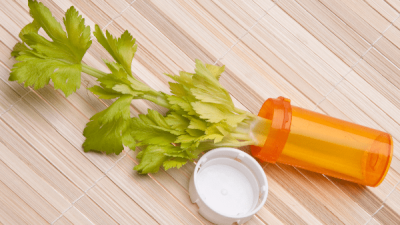Produce “prescriptions,” which provide vouchers to low-income people for purchasing fruits and vegetables, work, according to a new study published in the journal Circulation: Cardiovascular Quality and Outcomes.
That is, they do increase consumption of fruits and vegetables, to the amount of 0.85 cups per adult and 0.45 cups per child per day.

“In this large, multisite evaluation, produce prescriptions were associated with significant improvements in F&V [fruit and vegetable] intake, food security, and health status for adults and children, and clinically relevant improvements in glycated hemoglobin, blood pressure, and BMI for adults with poor cardiometabolic health.”
The researchers evaluated 3,881 people from low-income neighborhoods in a dozen states from California to Florida, who participated in nine different programs.
The participants received vouchers or debit cards worth from $15 to $300 per month for buying fruits and vegetables from groceries and farmers markets.
According to a 2019 report from USDA’s Economic Research Service, “The average American falls far short” of recommended produce intake, “consuming only 0.9 cups of fruit and 1.4 cups of vegetables per day. Individuals choose foods based on tase, convenience, cost, and other factors, in addition to Federal dietary recommendations. Cost, in particular, has been cited as a possible barrier to higher fruit and vegetable consumption, especially for low-income households.”
Americans can meet their recommended amounts of fruit and vegetable consumption for $2.10-2.60, the report said. It was issued in 2019, before the inflation of the early 2020s. Today’s prices would be $2.55-3.16 per day. Very little, it would appear—until you realize that that amounts to $76.50-94.80 per person per month. Which starts to look like a huge hit for poor families.
The produce industry has been pushing federal legislators to increase fruit and vegetable benefits in SNAP (aka food stamp) and the Special Supplemental Nutrition Program for Women, Infants, and Children (WIC).
But in the midst of Congressional belligerence over the budget—complete with threats of federal shutdowns—of course none of these provisions can possibly be guaranteed at this point.



